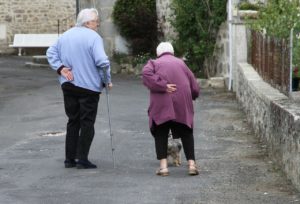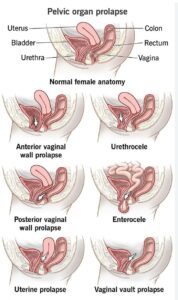What is the frailty phenomenon for elderly people?
Frailty is a common situation for people over the age of 65. It is characterized by a lack of adaptability and capacity to recover from external stress such as surgery, trauma or diseases.
A more specific definition is:
“A condition or syndrome which results from a multi-system reduction in reserve capacity to the extent that a number of physiological systems are close to, or past, the threshold of symptomatic clinical failure. As a consequence the frail person is at increased risk of disability and death from minor external stresses” (Partridge et al., 2012)
What are elderly people’s main problems ?
It is often associated with reduce muscle power, limited joint mobility, lack of stamina and motor function dysfunction which has a negative impact on other systems (cardiac, respiratory, etc.). Let’s see an example of vicious circle cause by frailty:
An elderly person with postural disorder such as an increase kyphosis (a person with its back always bends forward) will have less mobility in its spine and ribs. This lack of rib cage compliance will lead to reduce breathing capacity then reduce stamina. Consequently, it will be more and more tiring for the person to perform is daily life activity such as going upstairs or walking.
However the most common and negative effect of frailty is the inability to recover from a surgery or a trauma and is often associated with a Post Fall Syndrome.
How can we manage these problems ?
Frailty can be managed and its consequence can be prevent with:
- Exercise (Forster et al., 2010)
- Nutrition (Goodnough et al., 2011)
- Positive affect (Ostir et al., 2004)/depression (Billota et al., 2010)
- Psychosocial: social interaction (Lang et al., 2009)
Come visit us at our practice in North London, South London or online !
We offer home visit because we think it is more convenient for mummies and allow you to rest at the end of the session. But we also consult in our practice located in North london between Kentish town and Camden town, or in South London at Pimlico practice.




